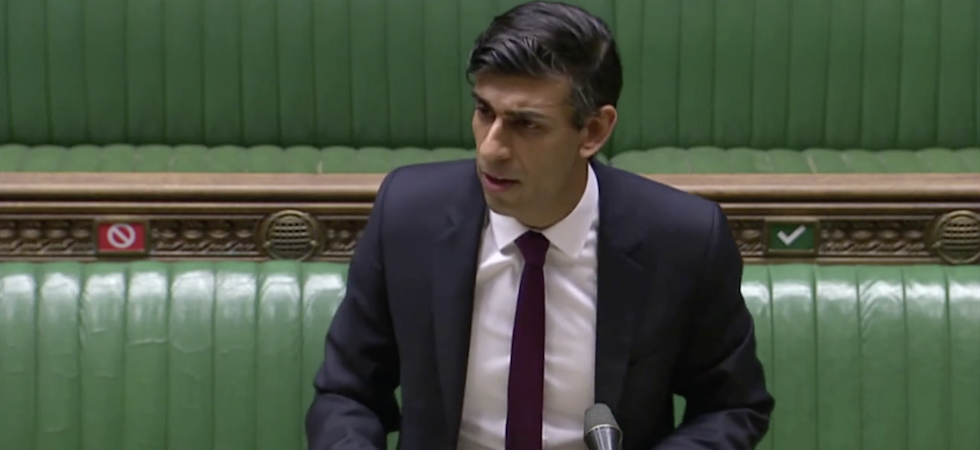Trade bodies from across the food supply chain have welcomed elements of the new Budget but expressed disappointment over others.
The 2021 Autumn Budget was announced by Chancellor Rishi Sunak in the Budget and Spending Review. According to a statement published by the government, plans included within the Budget comprise:
- Increasing public investment in UK Research and Development (R&D) to £20 billion by 2024-25, representing an increase of around a quarter in real terms
- Plans to reform R&D tax reliefs to support modern research methods
- A new 50% business rates discount for businesses in the retail and hospitality sectors in England. This will, says government, reduce the burden of business rates in England by £7 billion over the next five years, alongside a commitment “to modernise the business rates system” with more frequent revaluations every three years
- Suspending the HGV levy for a further year until 2023, and freezing Vehicle Excise Duty for heavy goods vehicles
- Introducing a new £1.4 billion Global Britain Investment Fund.
Sunak also touched on migration in his speech, mentioning the new Scale Up Visa which “will make it quicker and easier for fast-growing businesses to bring in highly skilled individuals.”
Praise and criticism
Responding to the Chancellor’s announcement, Ian Wright CBE, chief executive, Food and Drink Federation (FDF), said: “Food and drink manufacturers – and the farm to fork supply chain – will applaud the moves made by the Chancellor in the direction of a higher skilled, more productive UK economy. As the UK’s largest manufacturing sector, with a footprint in every constituency, food and drink is ideally placed to contribute.”
Wright added that there was “welcome news” for many of FDF’s members. He added that the FDF will continue to campaign for support for UK R&D “to ensure [the support offered] is fairly shared out so that it creates step change in how smaller how smaller food and drink businesses innovate.”
He continued: “We support the government’s Plan for Growth – but its success should be judged on whether it delivers the skilled people that we so desperately need. The Budget does little to address the labour shortages which grip the nation. It was also worryingly short on action to tackle rising inflation. Given the pressures they are facing, many manufacturers will simply have no choice but continue to pass costs down the chain.”
Welcome steps
Road Haulage Association (RHA) managing director Rod McKenzie said: “The RHA welcomes the suspension of the HGV road user levy for a further year along with the freezing of VED for HGVs.
“These are welcome steps for a hard-pressed haulage industry battling driver shortages and a range of other cost issues in the supply chain.”
McKenzie called the plans “a major victory” for the industry’s push for drivers to have better facilities. He said: “It is crucial that government continues to work with the industry to improve conditions as this will also act as an encouragement to potential truck drivers, particularly women.”
Mixed response from NFU
National Farmers’ Union (NFU) president Minette Batters said: “Agriculture is not immune from the inflationary pressures hitting all parts of the economy; British farmers and growers are currently facing huge challenges from increased feed, fertiliser and energy costs, alongside a crippling shortage of workers.”
Batters said it was “disappointing” that the Chancellor’s speech did not include plans to develop the government’s export strategy to help UK farmers grow their markets overseas, including funding for dedicated agricultural counsellors. NFU is also concerned that no details on overhauling government procurement practices to increase the provision of fresh and nutritious British food in schools, hospitals and other public sites were included in the Budget.
Batters said: “And equally the lack of focus on net zero funding, especially with COP26 only days away was a missed opportunity. However, the Chancellor did announce that businesses will benefit from business rates investment relief for green technologies, which is a positive move to support continued investment in renewable energy and may help in UK farming’s ambition to achieve net zero by 2040. We will now need to see more detail to be certain about the impacts this will deliver on farm.”
She added that the new 50% business rates for retail and hospitality discount was “encouraging”.
“As we have already highlighted to the Chancellor, future farming schemes have the potential to deliver meaningful, widespread and long-term benefits for Britain. It was therefore positive to hear that Rishi Sunak will provide Defra with much needed additional resources and funding to deliver its plans to support the essential transition to a new agriculture policy.”









